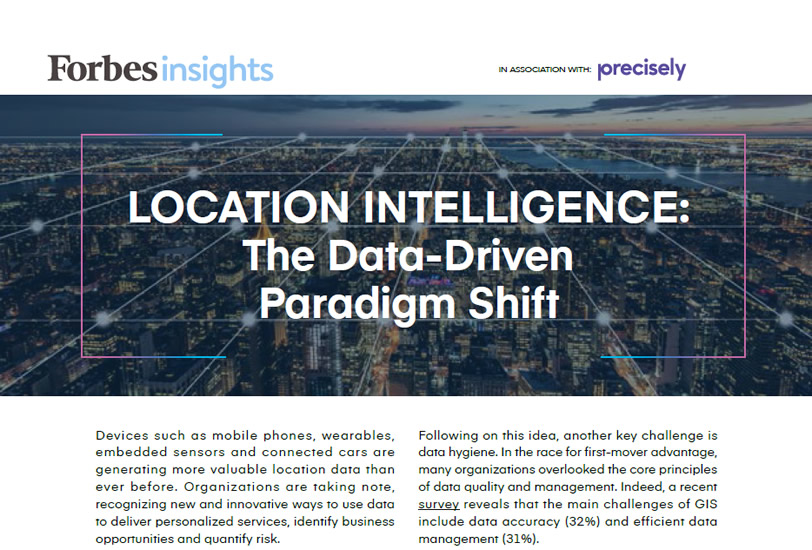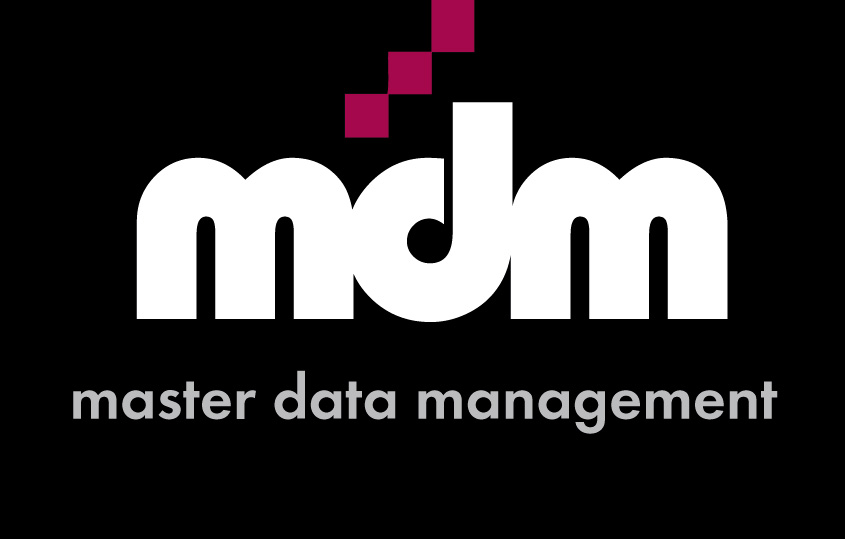Location intelligence is an essential tool for businesses to make informed decisions, drive revenue growth, and improve customer experiences. In this article, we will discuss what location intelligence is, its benefits, and how businesses can use it to gain a competitive advantage.

Ready to improve your data-driven decision-making? Our article on Business Intelligence Tools can help you choose the right tools to get the job done
Table of Contents
- What is Location Intelligence
- Why is Location Intelligence Important?
- How Does Location Intelligence Work?
- Benefits of Location Intelligence
- Types of Location Intelligence Data
- Use Cases of Location Intelligence
- Best Practices for Using Location Intelligence
- Challenges of Implementing Location Intelligence
- Future of Location Intelligence
- Conclusion
- FAQs
What is Location Intelligence?
Location intelligence refers to the ability to extract meaningful insights from location data. Forrester defines location intelligence as “the practice of collecting and managing customer location data, enriching it with other data sources, and analyzing for contextual insights for the purposes of informing optimized actions, decisions, and customer experiences.”
“the practice of collecting and managing customer location data, enriching it with other data sources, and analyzing for contextual insights for the purposes of informing optimized actions, decisions, and customer experiences.”
Forrester Research
Location data can be any information that is linked to a specific geographic location, such as addresses, latitude and longitude coordinates, or post codes. Location intelligence involves preparing this data and analyzing it to gain insights into consumer behaviour, market trends, and business operations.
Why is Location Intelligence Important?
Location intelligence is important for businesses in many ways. First, it allows businesses to understand their customers better. By analyzing location data, businesses can gain insights into where their customers live, work, and spend their time. This information can help businesses tailor their marketing campaigns, products, and services to meet the needs of their customers.
Second, location intelligence can help businesses make better decisions about where to open new stores or offices. By analyzing location data, businesses can identify areas with high population densities, high levels of foot traffic, or other factors that make them attractive locations for new stores or offices.
Finally, location intelligence can help businesses optimize their operations. By analyzing location data, businesses can identify areas with high demand for their products or services, and allocate their resources accordingly. This can help businesses reduce costs and improve efficiency.
With an estimated 80 per cent of data having a location component, it’s not surprising that a 2020 study by Dresner Advisory Services reported that 53 per cent of respondents considered location intelligence to be very important to their businesses.
How Does Location Intelligence Work?
Location intelligence works by collecting location data from a variety of sources, such as GPS devices, social media, and mobile apps. This data is then enriched, processed and analyzed using sophisticated algorithms and machine-learning techniques. The insights gained from this analysis are presented to decision-makers in a user-friendly format, such as maps, charts, or dashboards.
Benefits of Location Intelligence
There are many benefits of using location intelligence in business. Here are some of the most important:
Improved customer experiences: By analyzing location data, businesses can gain insights into customer behaviour and preferences. This information can help businesses tailor their products and services to meet the needs of their customers, improving customer satisfaction and loyalty.
Increased revenue: By understanding where their customers live, work, and spend their time, businesses can identify new revenue opportunities. For example, a retailer might use location intelligence to identify areas with high demand for their products and open new stores in those locations.
Better decision-making: Location intelligence can help businesses make better decisions by providing them with real-time insights into market trends, consumer behaviour, and business operations. This can help businesses reduce costs, improve efficiency, and stay ahead of the competition.

Types of Location Intelligence Data
There are many types of location intelligence data that businesses can use. Here are some of the most common:
Geospatial data: This includes data such as maps, satellite imagery, and terrain data.
Demographic data: This includes data on population density, income levels, education levels, and other demographic factors.
Point of interest data: This includes data on landmarks, businesses, and other points of interest.
Mobile device data: This includes data from GPS-enabled devices, such as smartphones and tablets.
Use Cases of Location Intelligence
There are many use cases of location intelligence across various industries. Here are some examples:
Retail: Retailers can use location intelligence to identify areas with high demand for their products and services, and open new stores in those locations. They can also use location data to personalize their marketing campaigns and improve the customer experience.
Insurance: Insurance companies are increasingly using location data to better understand risks related to location. For example, is an insured property at high risk of fire damage, flooding or crime. A shift of a few hundred metres can make a substantial difference, for example, by elevating a property out of a flood plain.
Real estate: Real estate agents can use location intelligence to identify areas with high demand for housing, and help their clients find properties in those locations. They can also use location data to analyze market trends and make more informed investment decisions.
Logistics: Logistics companies can use location intelligence to optimize their delivery routes and reduce transportation costs. They can also use location data to monitor inventory levels and ensure that products are delivered on time.
Healthcare: Healthcare providers can use location intelligence to identify areas with high rates of chronic disease, and develop targeted prevention and treatment strategies. They can also use location data to identify areas with limited access to healthcare services and develop programs to address those gaps.
Telecommunications: The final of our location intelligence examples is the Romanian branch of a highly successful telecommunications operator. The Romanian branch has 10 million customers across the country, nearly half of the active mobile telephony users.
Transparency is one of the firm’s core values. To deliver that value, the company makes information about coverage areas as well as service outages widely available. Customer service representatives need that information immediately so they can help customers.
The company needed to centralize that data to make it easier for customer service representatives to access it. That’s why the company turned to a location intelligence solution. Originally, the solution served as a repository for information about services, coverage, equipment, incidents, alarms, and customer complaints.
Best Practices for Using Location Intelligence
To get the most out of location intelligence, businesses should follow these best practices:
Identify business goals: Before implementing location intelligence, businesses should identify their goals and objectives. This will help them determine what data they need to collect and analyze, and how they will use the insights gained from location data.
Use multiple data sources: Businesses should use multiple sources of location data to get a comprehensive view of their customers, market trends, and business operations.
Ensure data quality: Location data is only useful if it is accurate and up-to-date. Businesses should ensure that their data is of high quality by regularly validating and cleaning it, and by partnering with a trusted data provider to add insights, demographics and other enrichments.
Protect customer privacy: Businesses should be transparent about how they collect and use location data, and ensure that customer privacy is protected at all times.
Location Intelligence leader, Precisely suggests 3 Questions CIOs Should Ask Themselves About Location Intelligence:
- How does location intelligence fit within your data strategy?
- How does it enable your customer journey?
- How do you ensure the integrity of data is being considered when it comes to location intelligence?
Challenges of Implementing Location Intelligence
While location intelligence offers many benefits, there are also challenges to implementing it effectively. Some of the most common challenges include:
Data quality: Ensuring that location data is accurate and up-to-date can be a challenge, especially when dealing with multiple data sources.
Data integration: Integrating location data with other business data can be complex, and requires sophisticated data management tools and techniques.
Data privacy: Protecting customer privacy is essential when collecting and using location data. Businesses need to ensure that they are compliant with relevant data privacy laws and regulations.
Future of Location Intelligence
The future of location intelligence looks bright. Advances in technology, such as the Internet of Things (IoT) and artificial intelligence (AI), are making it easier to collect, analyze, and act on location data. As a result, businesses will be able to gain even more insights into consumer behaviour, market trends, and business operations.

Conclusion
Location intelligence is a powerful tool for businesses to gain insights into consumer behaviour, market trends, and business operations. By analyzing location data, businesses can make informed decisions, drive revenue growth, and improve customer experiences. However, implementing location intelligence effectively requires careful planning and attention to data quality and privacy. Businesses that do it right will be well-positioned to succeed in an increasingly competitive marketplace.
FAQs about Location Intelligence
What is the difference between geolocation and location intelligence?
Geolocation refers to the process of determining a device’s location using GPS or other technologies. Location intelligence, on the other hand, refers to the process of enriching and analyzing location data to gain insights into consumer behaviour, market trends, and business operations.
What types of data are used in location intelligence?
Location intelligence uses a variety of data sources, including spatial data (geospatial data), which is data that is linked to a specific location, as well as other types of data such as demographic data, customer data, and transactional data. These data sources can be combined and analyzed to provide insights into customer behavior, market trends, and other key performance indicators.
What are some tools used in location intelligence?
There are many tools available for location intelligence, ranging from desktop GIS software to cloud-based platforms that provide access to geospatial data and analysis tools. Some popular tools include Mapinfo, Google Maps, and Spectrum Spatial.
What are some challenges associated with location intelligence?
One of the biggest challenges associated with location intelligence is the quality and accuracy of the data used. Geospatial data can be complex and difficult to collect, and it may require specialized expertise to process and analyze. In addition, there may be legal and ethical considerations related to privacy and data protection that need to be taken into account.
Where can I learn about location intelligence?
Our BI and Analytics training program includes a course on Location Intelligence.
Data Preparation Tools can save you time and effort in analyzing your data. Check out our guide to learn more.
Our guide to Spatial Analytics Ashares more opportunities to leverage location data within your business analytics

Leave a comment